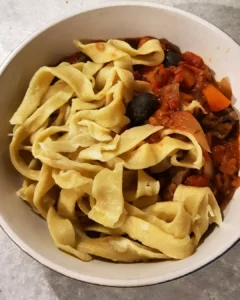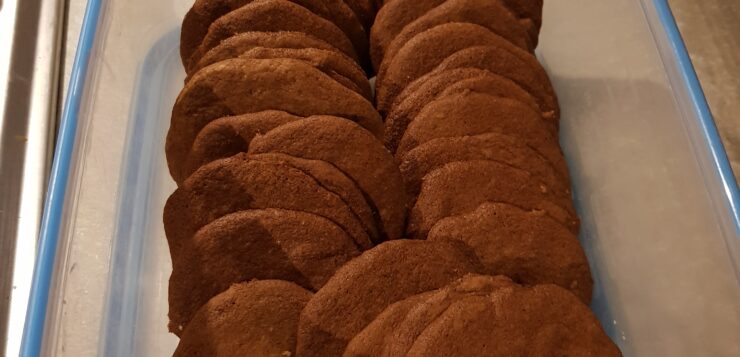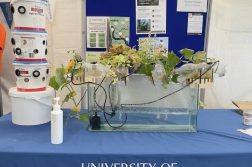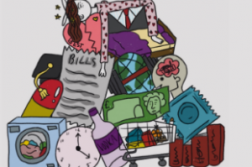January is seen as a time for change. Some people say they’re going to stop drinking alcohol or eating meat – and that they’re going to stop lying.
Most New Year’s resolutions are driven by a combination of guilt and an insatiable need for the moral high ground, so with that in mind, I decided to try and earn some eco-warrior kudos and leave no evidence of my existence on planet earth for a month. I then realised this was completely unrealistic, but decided I could at least try and cut-out any single-use plastic during January.
Unlike most self-improvement attempts, this one was going to come with easy to follow guidelines and achievable goals. Rule number one: use every edible part of every food bought. Rule number two: only recyclable or biodegradable packaging allowed. Goal: avoid starvation – whilst eating something vaguely resembling a balanced diet. Armed with some tote bags, I hit Southampton’s supermarkets to find out how easy this was going to be.
Breakfast supplies were an encouraging start. Porridge oats (cardboard box), milk and juice (recyclable cartons) and jam (glass jar) all went straight in the basket. I’m a creature of habit when it comes to morning food, which is just as well because I would have been struggling if I wanted anything else, although bread was successfully added once I checked the bag could be recycled at a recycling point (Portswood Sainsbury’s has one) and I’d promised myself I’d actually do this rather than chucking it in the bin like I usually do.
Next to the fruit and veg aisle. A fair portion of this was loose and I have a reusable mesh bag (30p at Sainsbury’s) to stick it in, so this went quite well. Meat and fish would be more problematic. The plastic trays fresh meat is packaged in are generally recyclable if you can be bothered to wash them properly, but the film on top isn’t. That said, a plant-based diet is better for the environment, cutting down on my meat consumption is something I’ve been aiming to do for a while, and tinned meat is awful.
So far, so ok, but my plans hit a snag when it came to picking up some carbs. Like many students, I live mainly off pasta, rice and potatoes, all of which come in plastic bags. This makes no sense seeing as only the potatoes are capable of going off and a bag of pasta would do well to survive a couple of weeks in my cupboard. My biscuit addiction definitely wasn’t going to be satisfied either, which meant stocking up on flour and sugar and hitting the kitchen later.
A quick bit of googling helped me find a shop that does sell dried pasta, rice and other beans and pulses loose, so I decided to check it out. Gaia Health Foods in Bedford Place has a wall of these items that you can attack with some tupperware, so I decided to stock up for the long haul whilst I was there. I also picked up a tub of vegetable stock, something which seemed doomed to be encased in single-use foil in the supermarkets. The downside? It is more expensive (although much better quality) than the supermarket equivalents.
One month later, I sat down over a bowl of zero-waste curry and thought about which changes I’d keep and which ones I’d put in the bin.
No fresh meat or fish: difficult at first, but grew on me. I won’t be putting meat in a curry or chili con carne again as I didn’t notice the difference at all, but I do miss sausages. Going vegetarian shaved at least £5 off my weekly shop and I could get 90% of what I wanted loose, so this was actually surprisingly unrestrictive.
Making my own biscuits: took up less time than I expected, noticeably cheaper and good fun. Will definitely be continuing.
Making my own pasta: fun whilst it had some novelty value. Not worth doing regularly unless you have a lot of time to kill and don’t mind bruising most of the bones in your hand.

Tupperware trips to Gaia: will continue doing, but probably only for rice and lentils and I’ll bring bigger tubs so I can stock up on more stuff in one trip.
Recycling point trips: fine once I remembered to take the stuff I wanted to recycle with me.
So how did I do overall? Barring the time when I caved and bought a coffee in a disposable cup (might keep as plant pot/pencil holder?), I did manage to stick to the plan. That said, my diet did feel more restricted, and planning my food shops caused more headaches than usual. Ultimately, the major barrier to all this was time. Getting everything I wanted generally meant shopping in 2 or 3 different places and spending more time in the kitchen, something that certainly isn’t going to work for everyone. It also needs to be said that more ‘up-market’ supermarkets are much better at providing loose fruit and veg than their budget counterparts, and that cheaper own-brand products were more likely to be plastic-wrapped than their fancier alternatives. If you’re watching the pennies, as most of us are right now, it’s hard to justify spending an extra pound on a bag of pasta simply because of its packaging.
Remember that episode of Blue Planet 2 where the turtle got stuck in a plastic bag? That was over five years ago. Slow progress has been made since then, but the bottom line is that supermarkets need to be doing more to make essential products plastic-free, the government needs to do more to make them, and we need to put pressure on both to make plastic pollution a priority once again.




